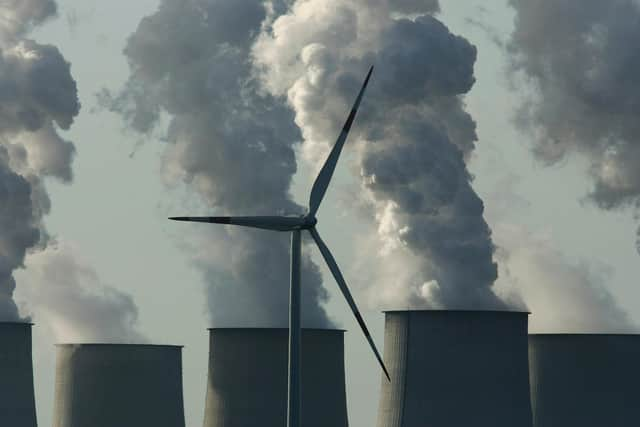Climate change: Allowing Shell to drill Cambo oil field off Shetland is like opening 18 coal-fired power stations – Dr Richard Dixon
This one field has the potential to produce oil and gas that would result in ten times Scotland’s annual climate emissions. Nearly 60,000 people have so far signed a petition calling for the plan to be scrapped.
The UK government consultation is on an environmental assessment of the plans by Siccar Point Energy and Shell to produce oil over the next several decades from the Cambo field.
Advertisement
Hide AdAdvertisement
Hide AdOn the production side, figures in the assessment show that the development would be one of the least efficient in the European oil sector in terms of climate emissions released per barrel of oil produced, yet the UK government and the industry already has a deal which is supposed to see these emissions falling.
On the use of the oil, the assessment makes the ridiculous claim that it is too hard to calculate the impact of the development on overall climate emissions.
The first phase of development aims to extract oil which will produce over 70 million tonnes of carbon dioxide when it is burnt. That’s the equivalent of the annual emissions of 18 new coal-fired power stations.
In future years, extracting all the oil in the field would release nearly six times as much, the equivalent of 10 years’ worth of Scotland’s current total emissions from all sectors. The field is expected to operate up to 2050, five years after Scotland’s target to become net-zero emissions.


In May, the International Energy Agency, not known for its radical thinking, concluded that climate change means there should be no more new oil and gas developments anywhere in the world if we are to have a hope of meeting the targets in the 2015 Paris Climate Agreement.
This is all rather embarrassing for the UK government, which is trying to claim to be a climate leader going into the United Nations’ Cop26 summit in Glasgow in November.
Having overruled local objections to approve the first new deep coal mine in 30 years in Cumbria, with a new gas-fired power station being discussed for Peterhead and now with likely approval for this new oil development, the UK is certainly not looking like it has left fossil fuels behind.
It’s also embarrassing for Shell, with a 30 per cent stake in the development, who were ordered by a Dutch court in May to immediately start planning to reduce their climate emissions.
Advertisement
Hide AdAdvertisement
Hide AdAnd it is problematic for the Scottish government, whose policy is that any support for the oil industry would only be forthcoming if the sector is contributing to a “sustainable energy transition”. This includes the transition from fossil fuels to renewables and energy efficiency.
So far the Scottish government has been silent on the Cambo development but this could be the challenge that finally makes ministers come off the fence.
If they support the development of the Cambo field, then they cannot be serious about climate change. If they are serious, and want to show they are more serious than the UK government, they need to clearly say that developing this and any other new oil fields is not compatible with our climate change commitments.
Dr Richard Dixon is director of Friends of the Earth Scotland
A message from the Editor:
Thank you for reading this article. We're more reliant on your support than ever as the shift in consumer habits brought about by coronavirus impacts our advertisers.
If you haven't already, please consider supporting our trusted, fact-checked journalism by taking out a digital subscription.
Comments
Want to join the conversation? Please or to comment on this article.
